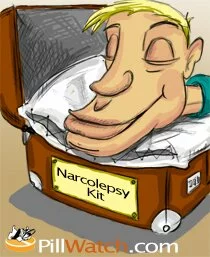
In an old fairy tale one poor but wise man was asked "What is the most precious in the world?" The man answered Sleep. There is nothing better than a sound sleep". And he was indeed right.
No matter how happy we are and what a wonderful day full of events it is, at some moment comes an irresistible urge to leave everything and fall asleep. We can fight with this need for some time but soon it becomes unconquerable and we are glad to lapse into a mysterious and peaceful world that is called sleep.
The majority of us know that tomorrow will be another interesting day and we will wake up rested and with new energy to perform deeds and make mistakes, to learn something new, to fall in love, in one word to live.
All our actions are impossible without such apparently natural, but vitally important thing as sleep. Therefore lack of sleep and sleep disorders are more than unpleasantness; they are serious troubles that hinder the normal way of living.
One of the neurological disorders that affect sleep habits is narcolepsy. Though according to some estimation about 3 million people around the world have it (alone in the USA the disease affects more than 200 000 Americans), narcolepsy is a purely recognized and unexplored phenomenon.
People affected with narcolepsy suffer from excessive daytime sleepiness. They can become drowsy or fall asleep at any time and at any not always appropriate place. Under this neurological condition persons brain is not able to regulate sleep-wake cycle, that's why having felt an overwhelming urge of sleepiness and tiredness a person cant resist it and fall asleep amid the conversation, while working, eating or doing something. This can happen several times a day. The duration of such naps varies from few seconds to several minutes.
Besides involuntarily falling asleep during a day narcolepsy can be characterized by sudden loss of muscular control (cataplexy), temporal sleep paralysis, hallucinations, automatic behavior (e. g. a person is doing something while sleeping but after awakening he or she cant remember about it) and frequent awakenings at night so a person doesnt get enough deep sleep.
The first symptoms of narcolepsy can occur at a quite young age in both men and women. The problem is that it can take many years before a condition could be recognized as narcolepsy. The severity and presence of symptoms vary from patient to patient. Since not all afflicted persons have all the symptoms, confirmation of diagnosis is rather difficult. Some patients report that the condition improves with time; in other cases it worsens and becomes more complicated.
The exact cause of narcolepsy hasnt yet been defined though some scientists suggest that the condition may appear because of lack of some important chemical in persons brain responsible for sleep control.
There is also experimental evidence that narcolepsy runs in families thus has an inherited predisposition. 10% of patients report about a relative with the same condition. An inheritable factor cannot be however a single cause of such a complex neurological disease.
It is rather a combination and complicated interaction of many factors, genes regulating immune-system function and chemical compounds in our brains that control biological processes. Some of the many factors that can have impact on functioning of the brain and thus causing narcolepsy are infections, stress, hormonal changes especially during puberty or menopause, psychological burdens, alterations of sleep schedules, traumatic injuries, tumors and many others.
There is no a single medication at present that can cure the condition once and for ever. But there are many drugs helping to control the main and the most disturbing symptoms of narcolepsy: excessive daytime sleepiness (EDS) and cataplexy.

To reduce the number of sleep attacks and to overcome sleepiness doctors prescribe central nervous system stimulants (such as amphetamines, methylphenidate, modafinil etc.) and antidepressants to control cataplexy. These medications are rather effective for many patients but the doctors must strictly monitor their usage because of possible side effects and potential addiction.
People suffering from narcolepsy belong to a vulnerable group. They often become socially isolated because they are ashamed of their condition and physical problems.
Due to the fact that the disorder is not widely known among the general public people with narcolepsy are often considered to be lazy, unintelligent and undisciplined. Its quite a deceitful impression. With the proper day time-table, regular sleep schedule and appropriate medical care people with narcolepsy can lead productive lives. They just need our understanding and emotional support.
Lyudmyla
| Tip for you : Sign-in with Your OpenID and post faster, easier and with easy access to all your past posts. | |
|
Your Nick: |
















